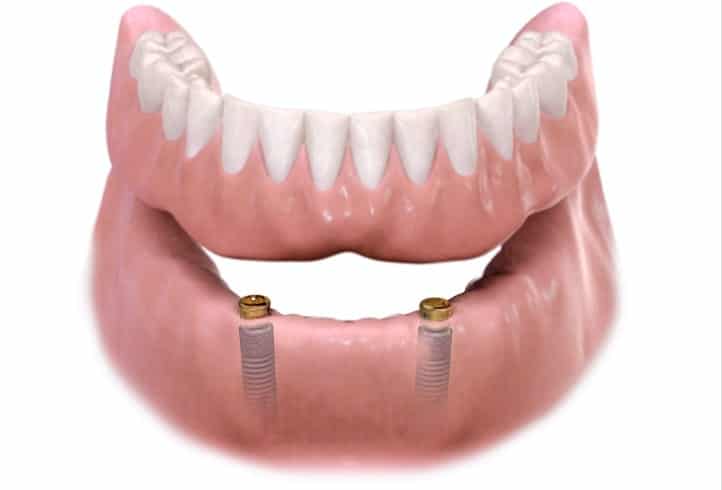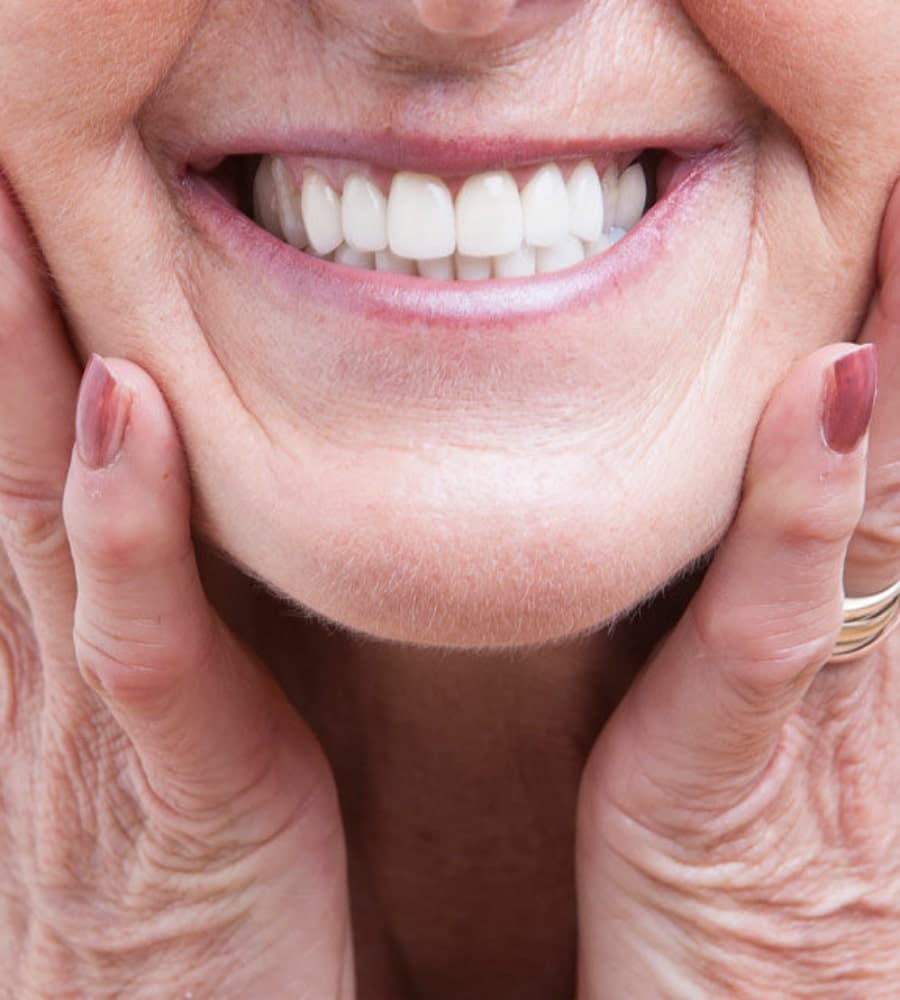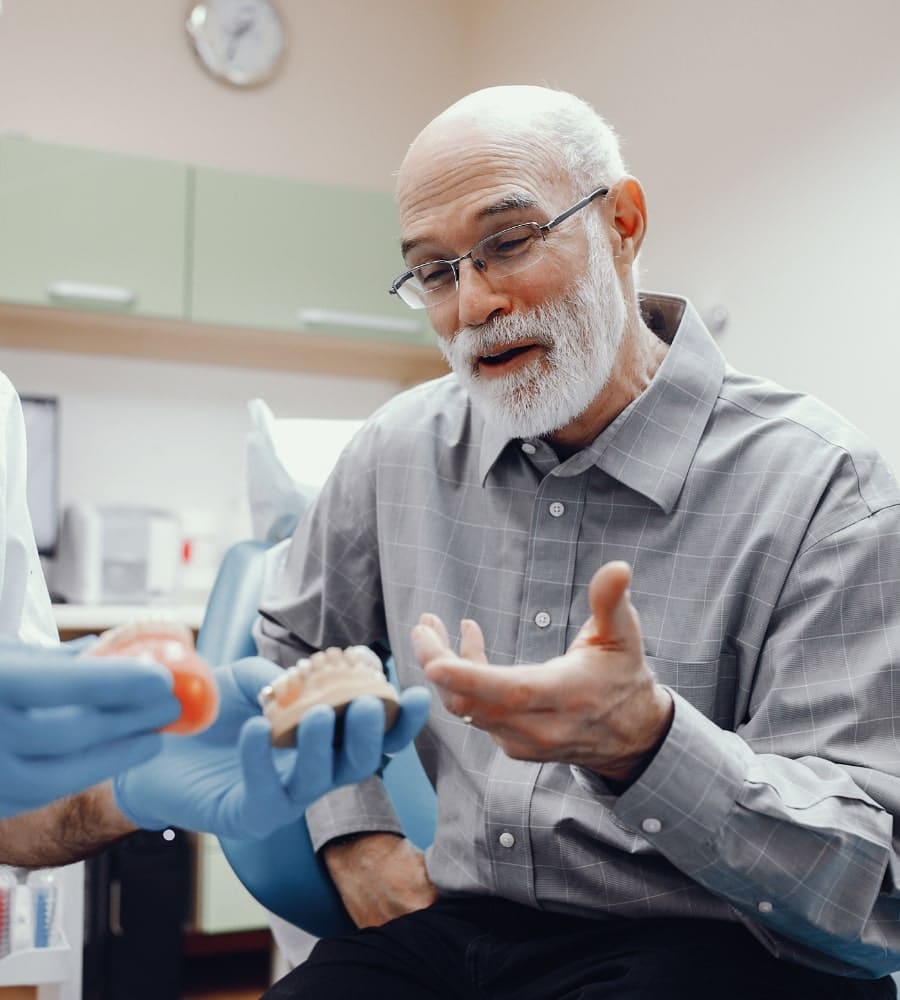
Overdentures
Also known as overlay dentures, overdentures are a set of custom-made replacement teeth supported by remaining natural teeth or small titanium anchors called dental implants that are permanently placed in your upper and lower jaw bone. Overdenture implant therapy is prescribed to patients like yourself who are missing several or all of your teeth, allowing you to regain the quality of life you may have lost along with your teeth.

Advantages Of Overdentures
[faq id=”129″]
Disadvantages Of
Overdentures
[faq id=”130″]

The Process of Getting Overdentures
It generally takes 5-7 months to fully install your overdentures (including all consultations, surgeries, and the actual overdenture placement) due to a variety of factors including necessary preliminary procedures (longer time if you need a bone graft, for instance). However, it’s well worth waiting for the end results — plus you’ll get a temporary denture for the interim.
During your first appointment, you will meet with one of our dental specialists who will review your dental history. Our staff will then capture X-Rays, perform a CT (computer tomography) scan of your mouth, and take impressions of your teeth/gums to create the perfect overdenture for your specific dental situation. A temporary denture will be created and given to you, which will also be used as a prototype for your permanent overdentures. That way, we will be able to evaluate the best placement for your implants in addition to gaining an accurate read on how well your dentures will fit.
One month later, we will schedule your first surgical appointment, where your assigned dental professional will place the implants into the jawbone. It is recommended that you avoid putting any unnecessary pressure onto the implants — your temporary denture will be suited to withstand pressure elsewhere on your jaw. After your first procedure, your dentist will wait 3-4 months if implants were inserted into your lower jaw and 5-6 months if they were placed in your upper jaw. This time allows for the bone and implants to bond to one another, providing a steady base for your next procedure day,
At your second surgical appointment (in 3-6 months), your dentist will take another set of X-Rays to determine if the implants are ready to receive caps. Once you are approved to move forward, your dentist will then expose the tops of the implants and place a collar (healing cap) on each head, which serves to guide the healing process of your gums.



